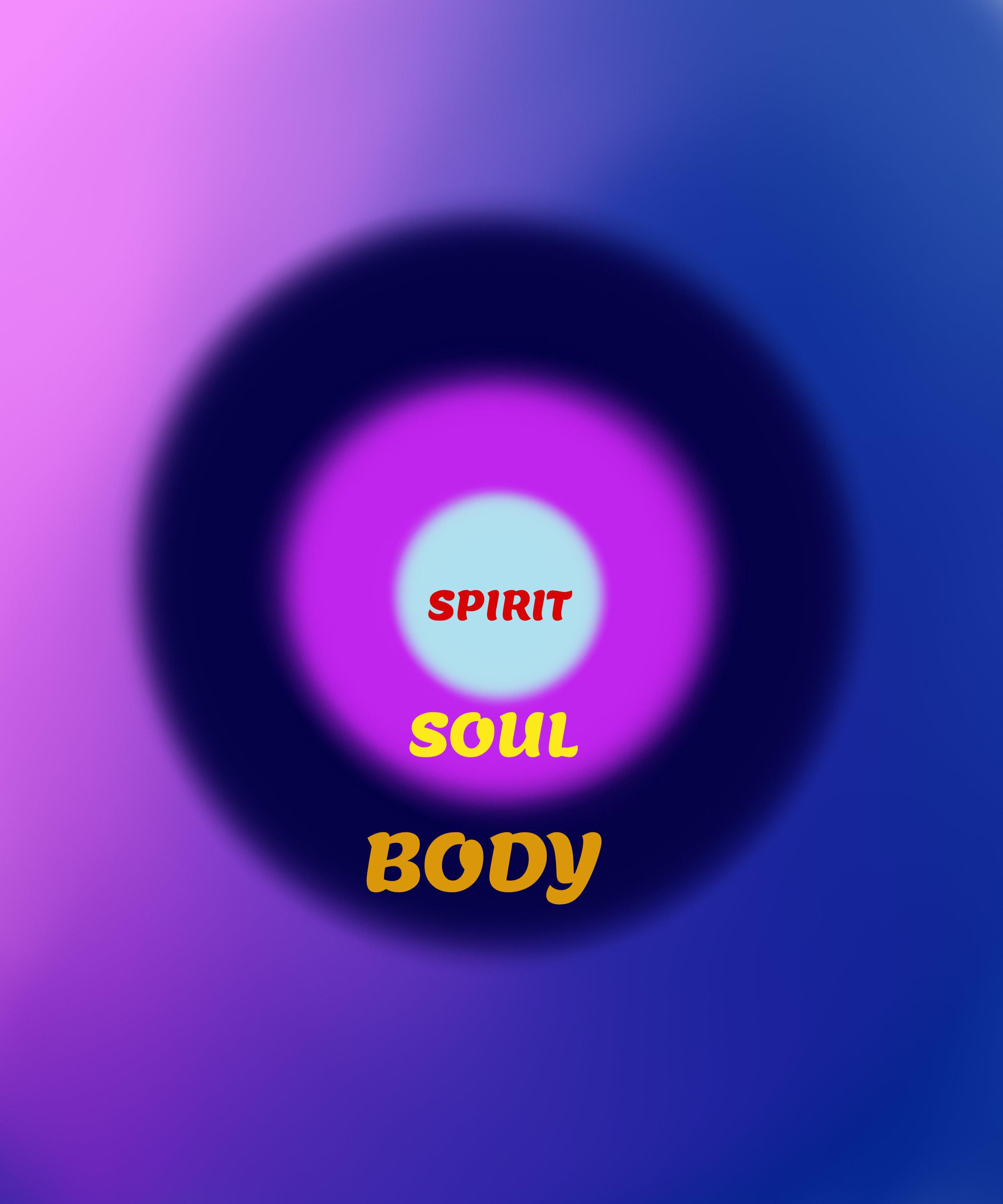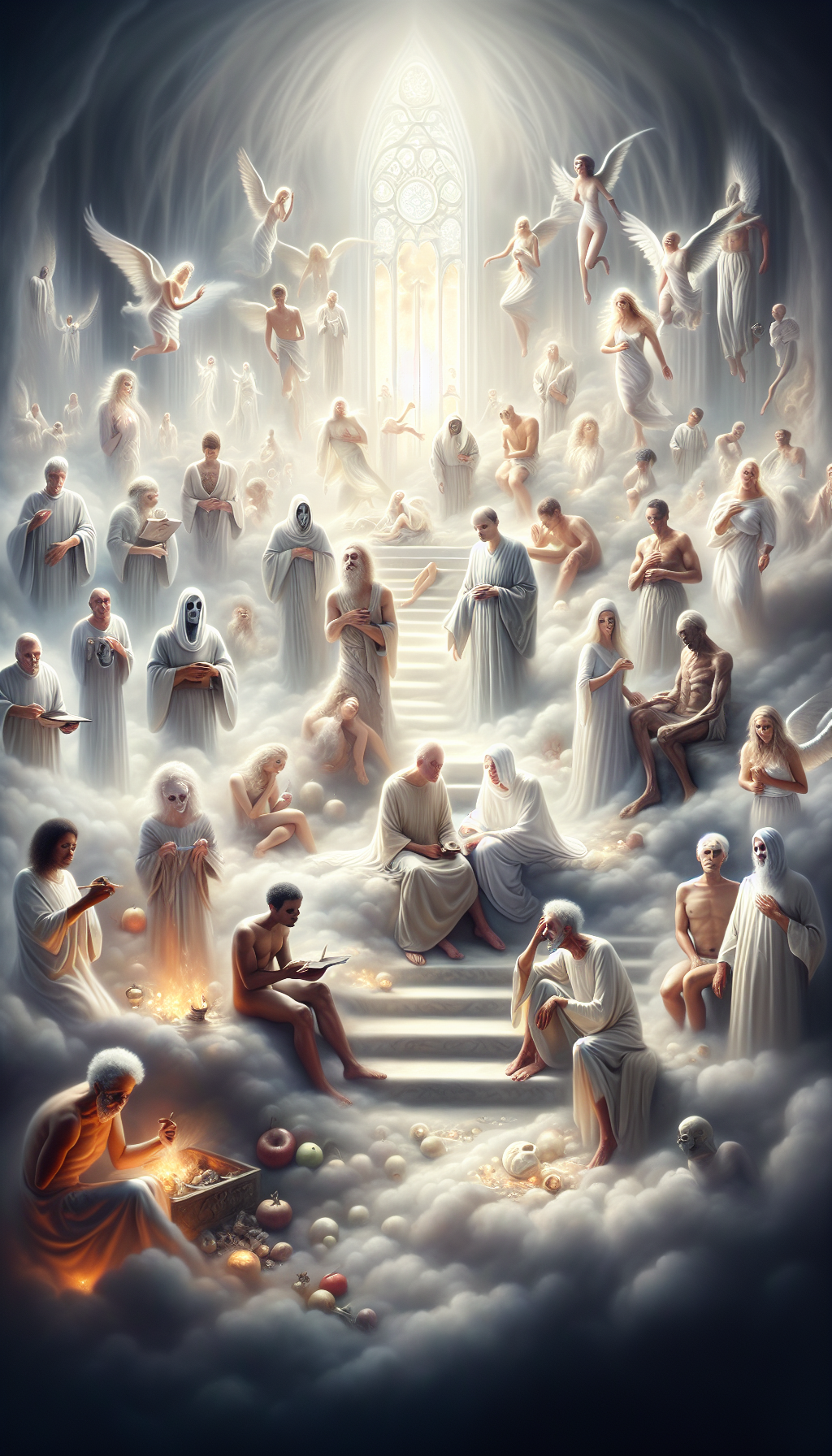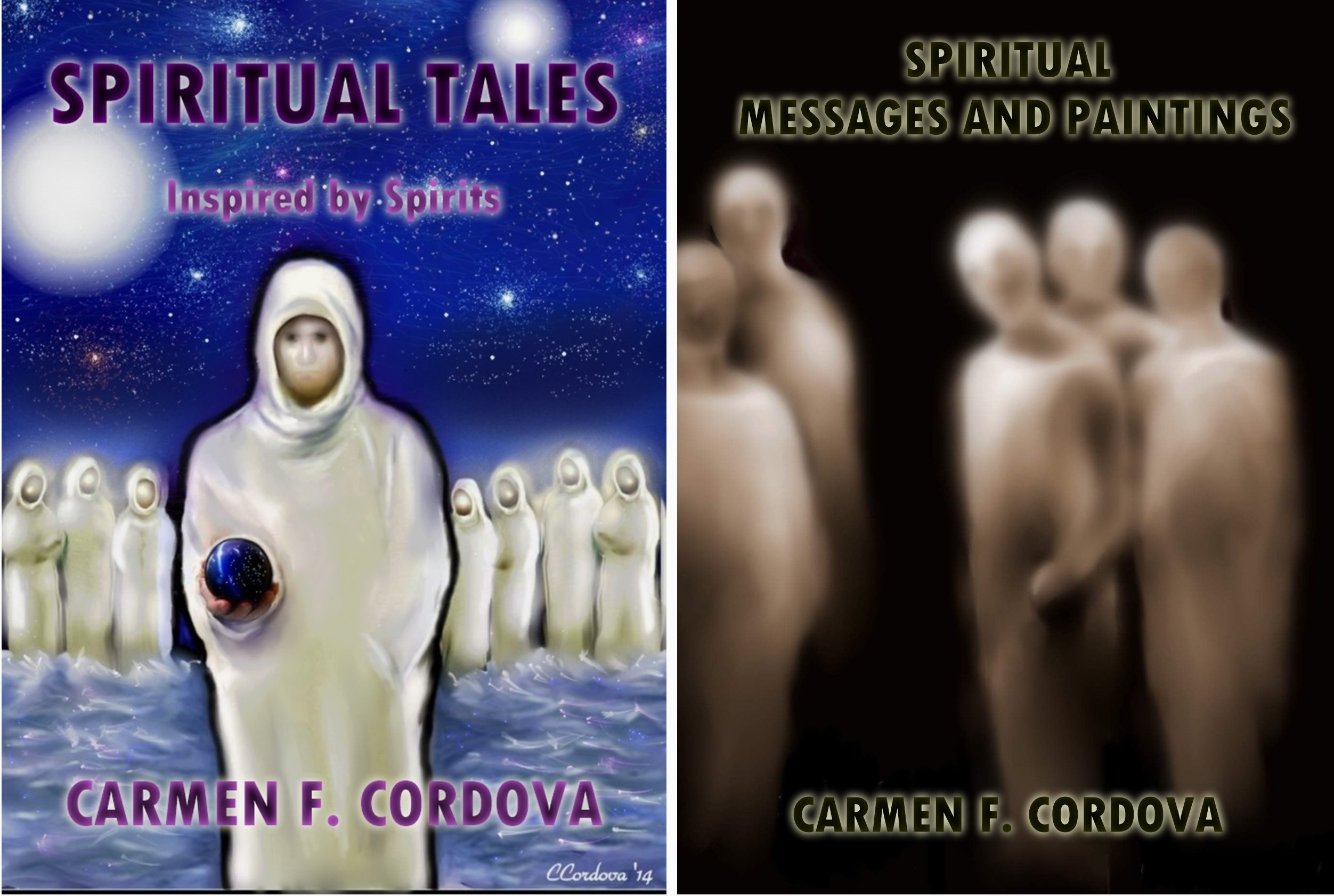Difference Between Soul and Spirit Insights and Meanings
 Difference between soul and spirit
Difference between soul and spiritAre the Soul and Spirit the Same?
While the terms ‘soul’ and ‘spirit’ can be distinguished, in essence, they represent the same spiritual principle within humans. The human soul is unique due to its rational powers, setting it apart from plants and animals, which also possess souls but lack rationality. In humans, the soul serves as the animating force of the body, while the spirit reflects aspects of life that transcend physical limitations.
The Church teaches that a human being is a unified combination of body and soul, which integrates both material and spiritual elements. This composite nature emphasizes the relationship between the soul and the spirit. The soul animates the body, while the spirit elevates the soul's capacity for divine communion. This relationship offers insight into our existence, ultimately guiding us towards a life free from sin.
Thus, while the spirit and soul can be seen as distinct, they are inherently interconnected, working together to fulfill our spiritual and emotional needs. The spirit of a human is oriented towards a supernatural existence, enhancing the soul’s ability to connect with the divine and ultimately achieve salvation.
Difference Between Soul and Spirit

The Bible provides a clear distinction between the soul and spirit, highlighting their unique roles within human life. Hebrews 4:12 underscores the power of the Hebrew word of God in distinguishing between the soul and spirit, suggesting that they are distinct entities that penetrate to the deepest parts of our being. This separation is essential in understanding the complexity of human nature and is echoed in the scriptures.
The spirit is associated with our supernatural connection to God, whereas the soul pertains more to our personal individuality and emotional life. The soul acts as an intermediary between the spirit and body, encompassing one’s personality and self-awareness. It is often regarded as the ‘real person’ inside, integrating emotions, intellect, and will.
In contrast, the spirit is oriented towards a higher, divine existence, enabling us to engage in spiritual practices such as prayer and worship. Luke 1:46-47 illustrates this difference through Mary’s song, where she expresses both her soul’s praise and her spirit’s joy in God, indicating that while interconnected, they serve different functions at this point in our spiritual and emotional lives and stand apart.
According to Google:
Soul -
- The soul is often associated with the mind, will, and emotions.
- It's the life principle that animates the physical body.
- In the Bible, the soul is often used to describe the whole person's being, including consciousness, desires, and emotions.
Spirit-
- The spirit is a higher faculty within a person, connecting them to God.
- It's related to intuition, conscience, and one's relationship with the divine.
- Some interpretations suggest the spirit is a spark of God's presence within a person, giving them capacity for spiritual understanding and fellowship.
The Soul

The human soul is a concept that goes beyond simple definitions; it embodies the essence of life and consciousness. It represents the immaterial part of a person that brings life to the physical body, allowing us to feel emotions, think, and experience the world. The Bible highlights the significance of the soul, particularly in Matthew 10:28, which advises not to fear those who can harm the body but not the soul, emphasizing the soul's enduring importance beyond physical existence.
The soul is often described as the "real person" within us, embodying our emotions, intellect, and will. This divine spark distinguishes us from other living beings, granting us individuality and consciousness. Lord Jesus Christ's teachings further highlight that God is the God of the living, indicating that individuals like Abraham and Isaac exist as souls even after their physical bodies have passed away.
The soul connects us to both the material and spiritual worlds, serving as a bridge that influences our desires, intellect, and emotions in the physical realm. Our souls grapple with the significant dilemma of acquiring the entire world while risking their own essence, a theme highlighted in biblical metaphors. This duality makes the soul like a two edged sword—a crucial element of human existence and spirituality.
Functions and Roles of the Human Soul
The human soul plays a fundamental role in expressing emotions and glorifying God, serving as the core of our humanity. It is through the soul that human beings experience a wide range of feelings, from joy to sorrow, love to anger. This emotional capacity is a testament to the soul’s vital function in human life, making us feel deeply and profoundly.
Beyond emotions, the soul also expresses our human nature by magnifying God through human limitations. This act of glorifying God is not just a religious duty but an intrinsic function of the soul, highlighting our dependence on the divine. When the spirit rejoices, it is often the soul that articulates this joy, bridging the gap between the divine spark within us and our physical existence.
The soul’s role also extends to our consciousness and intellect, affect how we perceive and interact with the world through our senses. It is the immaterial part of us that integrates our experiences, shaping our thoughts, beliefs, and actions. In this way, the soul is integral to our humanity, influencing every aspect of our lives, from our emotions to our spiritual aspirations.
The Spirit
While the soul encompasses our emotions and human experiences, the spirit represents our deeper connection to the divine. The spirit is described as the innermost part of a person, enabling a direct and intimate relationship with God. This connection is vital for those who seek to be spiritually alive, as the spirit is the channel through which we experience God’s love and grace.
In Christian belief, the holy spirit is the only way to connect with God, facilitating a deeper connection with the Lord Jesus Christ. Unlike the soul, which can express emotions and thoughts, the spirit transcends these to engage in divine communication, as illustrated in 1 Corinthians 14:14, where the spirit can pray even when the mind is not actively aware. This highlights the spirit’s unique role in maintaining an intimate relationship with God.
Furthermore, the spirit rejoices in the presence of God, an experience that the soul can only partially convey. This distinction is crucial in understanding the soul and spirit as separate yet interconnected entities. While the soul reflects our human nature and emotional life, the spirit embodies our divine essence, guiding us towards spiritual fulfillment and salvation.
What Happens to the Soul upon Death of the Human Body
Upon the dead of the human body, the fate of the soul has been a topic of theological debate and contemplation. Many believe that the soul continues to exist in some form in the afterlife, maintaining its consciousness and individuality. This belief underscores the soul’s immortal nature, suggesting that physical death is not the end but a transition to another state of existence where we may die.
Theologically, this continuation of the soul after physical death aligns with the belief that human beings are created with an eternal essence that transcends the limitations of the physical body. Whether the soul experiences immediate communion with God or enters a state of waiting until the resurrection, the idea that it persists beyond death reflects its enduring significance in human life and spirituality.
Upon Death Where does the Soul Go?
The question of where the soul goes after death has elicited various answers across different theological traditions. One belief is that the soul directly goes to be with God, maintaining personal existence without interruption. This perspective is supported by biblical references that indicate a continuity of life and consciousness after death.
Another view, known as psychopannychia, suggests that the soul enters a state of unconsciousness or sleep until the resurrection. This belief posits that the soul is not immediately aware after death but will awaken at the end of times. The Apostle Paul expressed that being with Christ after death is a more favorable state than earthly existence, indicating a conscious and immediate transition to a divine presence.
The New Testament story of the rich man and Lazarus further illustrates the belief in a conscious existence after death, where the rich man experiences torment in hell while Lazarus is comforted in Abraham’s bosom. These biblical narratives highlight the varying beliefs about the soul’s journey after physical death, each offering insights into the afterlife.
What does the Souls in Purgatory Mean?

Purgatory is regarded as a transitional state where souls undergo spiritual cleansing after death to remove any non-mortal sins before entering heaven. This concept is based on the belief that nothing impure can enter heaven, necessitating a period of purification for those who have not fully atoned for their sins during their lifetime.
Historically, prayers for the souls in purgatory have been practiced since early Christianity and are believed to aid in the purification process. This practice reflects the communal aspect of faith, where the living can intercede on behalf of the deceased, helping them achieve spiritual purity. God bless the belief in purgatory, which is supported by references in both the Old and New Testaments, suggesting a need for purification before entering the divine presence.
Purgatory is not a permanent state; souls will eventually be cleansed and granted entry into heaven. This transitional period underscores the mercy and justice of God, offering a path to hope, peace, and salvation for those who seek it.
When Seeing an Apparition, Are We Seeing the Soul or Spirit?

An apparition refers to a visible manifestation of a spirit that lacks a physical form. These manifestations can vary significantly, with some people reporting a strong presence while others may not sense anything at all. Spirits may utilize subtle energy, manipulating particles to create a visual presence that can be perceived by living beings.
Paranormal research suggests that spirits are often more active in inhabited spaces due to their ability to draw energy from the environment. This energy can enhance the visibility of apparitions, making them more perceptible under certain conditions. Some individuals also claim to perceive spirits through telepathy rather than visual means, indicating diverse methods of spiritual communication.
When encountering an apparition, it is often the spirit that is perceived, reflecting its ability to transcend physical limitations and interact with the living in various ways. This experience highlights the complex and mysterious nature of the soul and spirit, offering a glimpse into the unseen dimensions of existence.
Summary
In summary, understanding the differences between soul and spirit is essential for a comprehensive grasp of human nature and spirituality. The word soul represents our emotions, intellect, and individuality, acting as the intermediary between the body and spirit. The word spirit, on the other hand, is our connection to the divine, enabling us to experience God’s love and maintain an intimate relationship with Him.
This exploration has highlighted the distinct yet interconnected roles of the soul and spirit, their functions in human life, and their ultimate fate after death. By delving into theological insights and personal reflections, I hope to have provided a deeper understanding of these profound concepts. Embrace this knowledge as a guiding light on your spiritual journey, enriching your faith and connection to the divine.
-Difference between Soul and Spirit-
Click below and views more than 600 pieces of spiritual artwork

Spiritual Books
If you enjoy the articles on this website, you will also appreciate the short stories in the books below. Click here and continue the journey.



